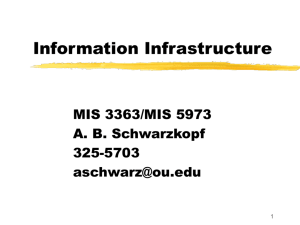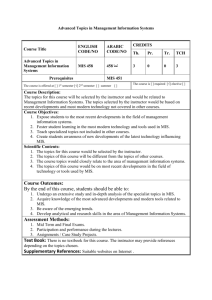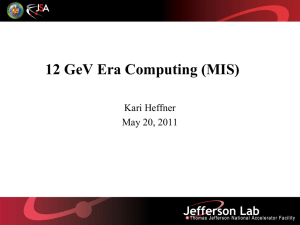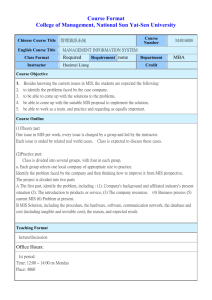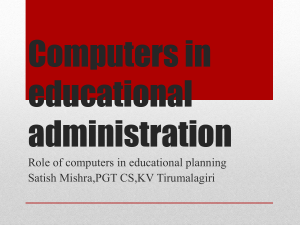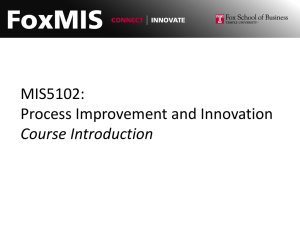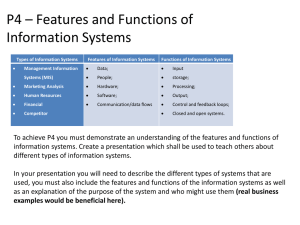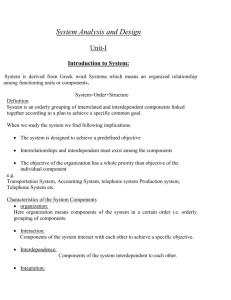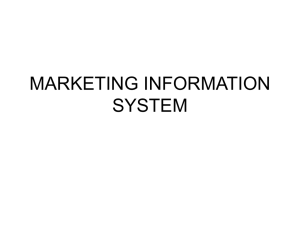MIS 3363 Information Systems Infrastructure
advertisement
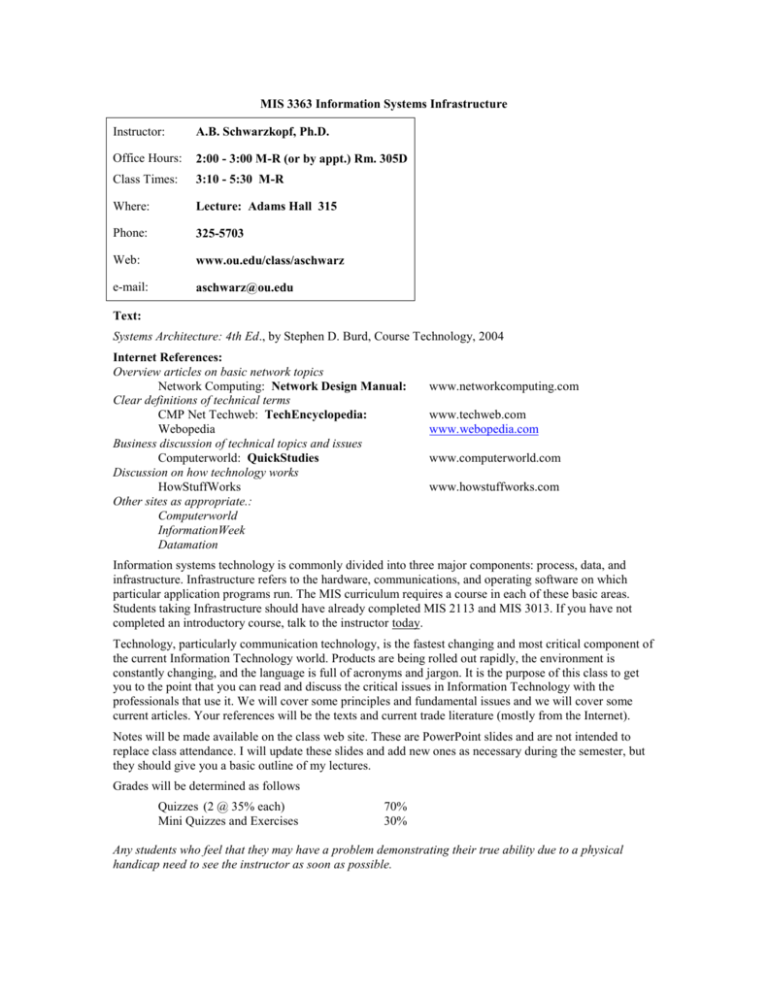
MIS 3363 Information Systems Infrastructure Instructor: A.B. Schwarzkopf, Ph.D. Office Hours: 2:00 - 3:00 M-R (or by appt.) Rm. 305D Class Times: 3:10 - 5:30 M-R Where: Lecture: Adams Hall 315 Phone: 325-5703 Web: www.ou.edu/class/aschwarz e-mail: aschwarz@ou.edu Text: Systems Architecture: 4th Ed., by Stephen D. Burd, Course Technology, 2004 Internet References: Overview articles on basic network topics Network Computing: Network Design Manual: Clear definitions of technical terms CMP Net Techweb: TechEncyclopedia: Webopedia Business discussion of technical topics and issues Computerworld: QuickStudies Discussion on how technology works HowStuffWorks Other sites as appropriate.: Computerworld InformationWeek Datamation www.networkcomputing.com www.techweb.com www.webopedia.com www.computerworld.com www.howstuffworks.com Information systems technology is commonly divided into three major components: process, data, and infrastructure. Infrastructure refers to the hardware, communications, and operating software on which particular application programs run. The MIS curriculum requires a course in each of these basic areas. Students taking Infrastructure should have already completed MIS 2113 and MIS 3013. If you have not completed an introductory course, talk to the instructor today. Technology, particularly communication technology, is the fastest changing and most critical component of the current Information Technology world. Products are being rolled out rapidly, the environment is constantly changing, and the language is full of acronyms and jargon. It is the purpose of this class to get you to the point that you can read and discuss the critical issues in Information Technology with the professionals that use it. We will cover some principles and fundamental issues and we will cover some current articles. Your references will be the texts and current trade literature (mostly from the Internet). Notes will be made available on the class web site. These are PowerPoint slides and are not intended to replace class attendance. I will update these slides and add new ones as necessary during the semester, but they should give you a basic outline of my lectures. Grades will be determined as follows Quizzes (2 @ 35% each) Mini Quizzes and Exercises 70% 30% Any students who feel that they may have a problem demonstrating their true ability due to a physical handicap need to see the instructor as soon as possible.
